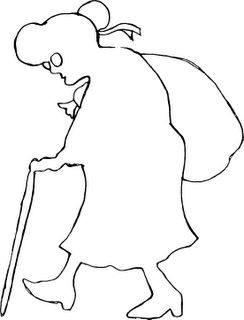The rector was addressing certain beliefs held by parishioners that must have given him great frustration. I’m not so much frustrated with an opposing viewpoint (disclosure: I support gay marriage) as I am intrigued by the character of a discussion itself. Any discussion, really, that provokes heated exchanges and where beliefs are so strongly held that new possibilities, new insight are unwelcome.
Due to copyright laws, I won’t quote the entire fable, but will try to give you a flavor of it.
“One evening a man came home and announced that he was dead.”The fable relates how various friends and family members try a number of tactics to persuade him otherwise. Sometimes they think they’ve come up with proof so overwhelming that the man could do nothing other than change his mind. Eventually they hit upon the idea of bringing in the family doctor, who has known the man from his childhood.
“[He] asked the man in a no-nonsense way, “Tell me, do dead men bleed?”The doctor proposed that he make a small cut in the man’s arm, promptly dressing it so that he need fear no infection. The man agrees to the procedure.
“Of course not,” said the man.
With everyone watching anxiously, the doctor deftly slit the flesh, and blood came spurting out. There was a gasp of joy throughout the group. Some laughed, others even applauded, though a few seemed rather to be relieved.See, now I’m congratulating myself on having put forth something that will surely make all the unreasonable people out there come to their senses. This should show them how wrong they are.
The doctor quickly dressed the wound and turned to everyone, saying, “Well, I hope that puts an end to this foolishness.” Everyone was congratulating the physician when they suddenly realized that the man was headed for the door. As he opened it, he turned to the group and said, “I see that I was wrong.” Then, as he turned to leave, he added, “Dead men, in fact, do bleed.”
But at the same time, my inner voice says, “How do I know that my belief isn’t the one that needs to be given up?”
What would it take to make us give up our most cherished belief?
From Friedman’s Fables, by Edwin H. Friedman, The Guilford Press, pp. 55–58.
